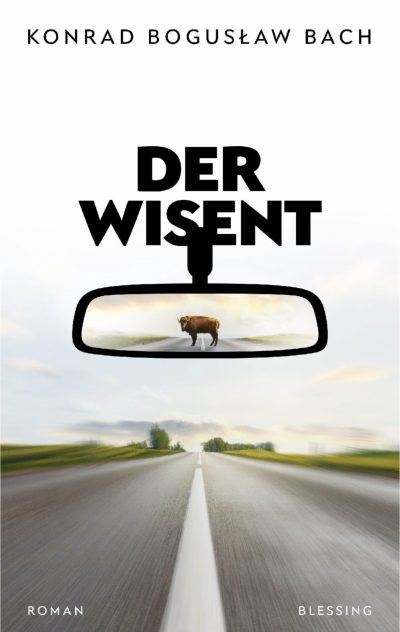The author and film-maker Konrad Bogusław Bach – between Poland and Germany

Bach’s areas of interest go even further beyond theology and theatre, dissertation and short films, however. Having made Berlin his home, he went on to study classical philology “on the side” – a subject that he had discovered as a theology student, and which fascinated him. This is of particular interest due to the fact that while working on his dissertation, Bach also trained as a teacher and took the state “Master of Education” exam. Despite his romantic streak, he never completely lost sight of the need to think in practical terms. There were very few secure jobs available for theologians and theatre specialists, and Bach would probably have had better chances of getting work as a theatre director if he had studied the subject and spent time shadowing directors in Berlin in his early 20s. He spent his probationary period as a teacher at the Heinrich Schliemann grammar school in the Berlin district of Prenzlauer Berg, where he enjoyed teaching Latin and ancient Greek. He then spent over two years at a primary school in nearby Wedding, where he lived with his wife and daughter, born in 2014. Naturally, he did not teach ancient languages there, but rather maths, art and sports. However, in his extracurricular “Greek myths” group, he awakened an interest among some of the pupils in the ancient myths which he himself had come to love a boy. He also ran a chess club, passing on what he had learned from his grandfather. Konrad Bach also has fond memories of the Erika Mann primary school: “A great head teacher, good ideas and just around the corner from where I lived!”
Today, he teaches at a grammar school in Frankfurt/Oder. However, he, his wife and their now four children live in Gubin, a Polish border town with a population of over 16,000. His wife works as a primary school teacher in Guben, on the German side of the border. Their children go to kindergarten in Poland and attend school in Germany. The family has friends and relatives on both sides of the border. As Konrad Bach says: “I really can say that I live in and between both countries.”
It’s therefore fitting that the subject of Bach’s first novel, published in 2022 when he was 40, is Polish-German relations. “Der Wisent” (“The Bison”) is a “road novel” funded by the Jürgen Ponto Foundation. Heniek, a mechanic in his early 60s, has been abandoned by his wife after 36 years of marriage. Together with the carpenter Andrzej, he sets out for Holland by car to try and bring her back. “I wanted to write a European homeland novel”, Bach explains. “In the end, the action only takes place in Poland and Germany, but the plot also includes characters from Spain or Greece. Also Holland, of course.” One important inspiration for the material came from three men whom Bach heard talking having a “hair of the dog” on the second day of a lavish Polish wedding. “The way they talked about global politics triggered something in me. There is a particular type of provincial Polish male that amuses and touches me. I wanted to create a homage to them that amuses and touches the reader.” What is the connection with the bison after which the book is named? Konrad Bach explains that in September 2017, a bison roamed freely through Poland, where it became quite a celebrity. As soon as the huge animal crossed the border into Germany, however, it was shot. “For me, this story is almost metaphorical. Not to mention the Europa myth with the bull.”
Bach wrote most of the novel during his daily commute on the train from Gubin to Frankfurt/Oder. “The journey lasted 40 minutes”, he says. “That’s why the novel consists of short, quick units.” The novel was also inspired by Bach’s desire to bring his Polish and German sides together, as well as his wish for people from both countries to meet each other as equals and with a sense of curiosity. In his words: “A lot of Polish people are very warm, straightforward and direct. They have the ability to not get bored and the willingness to have a good time with other people. That’s good for Germans, too.” When it comes to German people, he says, “It might sound strange, but in my experience, they are extremely open-minded. And intellectually, they are very open to new ideas. After all, alongside the Prussian tradition, you also have Romantic Germany, full of imagination and a love for nature. These two mentalities could complement each other very well.”
Konrad Bach is currently working on a new project, but would rather keep the details to himself for now.
Anselm Neft, June 2024



